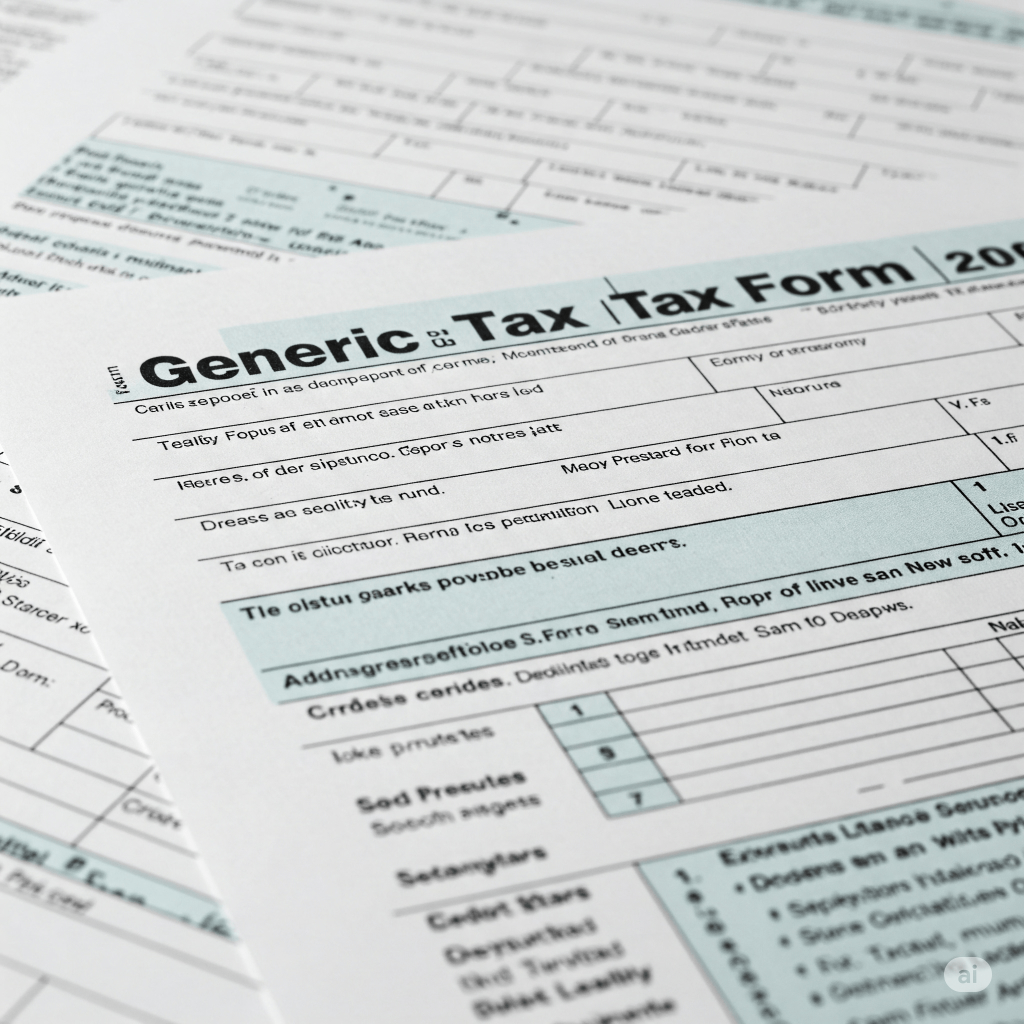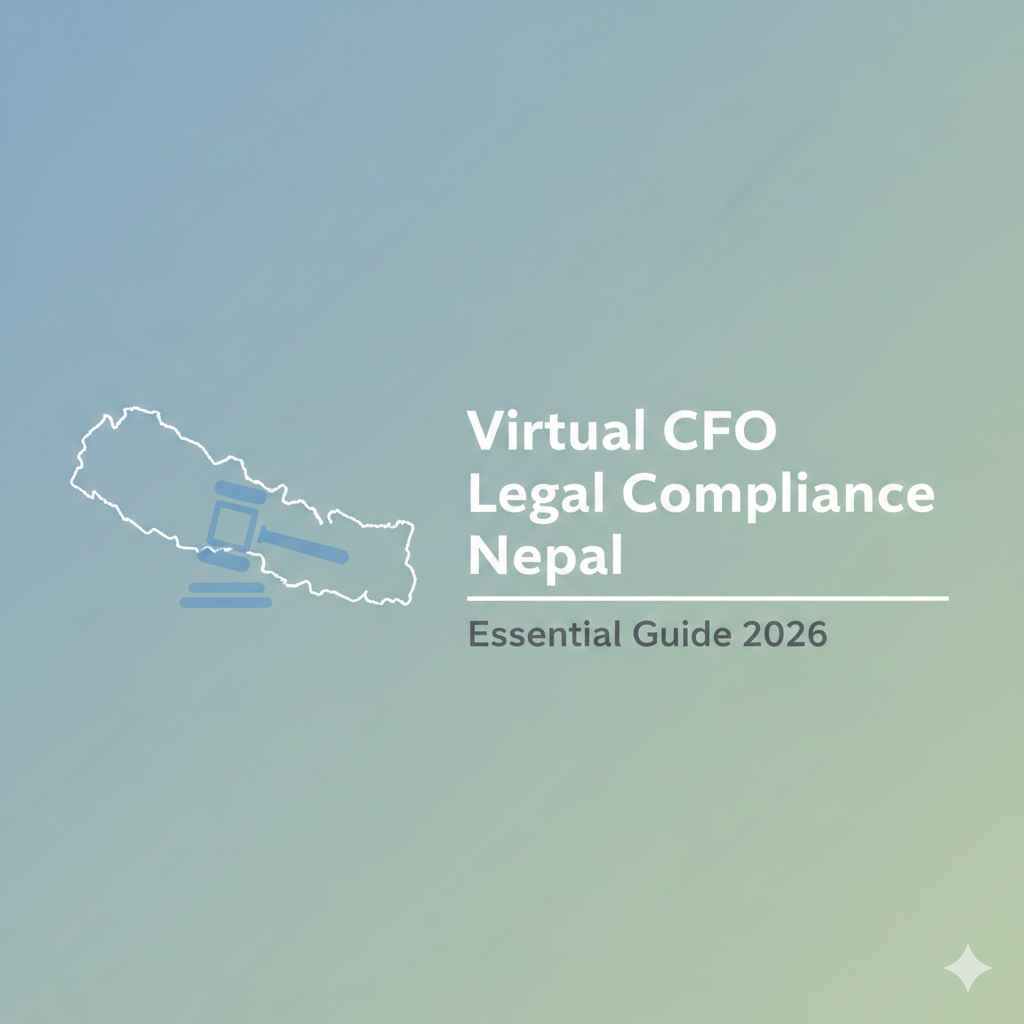
Last Updated: May 19, 2025
Introduction to tax identification number
A Tax Identification Number, commonly known as Permanent Account Number (PAN) in Nepal, is a unique identifier assigned to individuals and businesses for tax administration purposes. This 9-digit alphanumeric code serves as your identity in Nepal’s tax system and is essential for financial transactions, business operations, and maintaining tax compliance with the Inland Revenue Department (IRD).
In this comprehensive guide, we’ll walk you through everything you need to know about obtaining a PAN in Nepal, including the application process, required documents, associated costs, and frequently asked questions.
Why You Need a PAN in Nepal
Before diving into the application process, let’s understand why having a PAN is crucial:
- Legal Requirement: Under Nepal’s Income Tax Act 2058 (2002), every individual and business entity engaged in any income-generating activity must register for a PAN.
- Business Operations: A PAN is mandatory for registering a business, opening business bank accounts, and conducting formal business transactions.
- Tax Compliance: Without a PAN, you cannot file tax returns or fulfill other tax obligations, potentially leading to penalties.
- Financial Transactions: Many financial institutions require a PAN for significant transactions, investments, and property dealings.
- Government Tenders: A PAN is necessary for participating in government tenders and procurement processes.
Types of PAN in Nepal
The Inland Revenue Department issues three categories of PAN:
- Personal PAN (P-PAN): For individual taxpayers, including salaried employees and sole proprietors.
- Business PAN (B-PAN): For business entities such as private companies, public companies, and partnerships.
- Non-Profit Organization PAN (N-PAN): For non-governmental organizations, associations, and other non-profit entities.
Complete Process to Obtain a PAN in Nepal
Step 1: Choose Your Application Method
You can apply for a PAN in Nepal through:
- Online Application: Through the Inland Revenue Department’s official portal
- In-Person Application: At your nearest IRD office or Taxpayer Service Office (TSO)
Step 2: Prepare Required Documents
For Personal PAN (P-PAN):
- Completed application form
- Copy of citizenship certificate/passport
- Recent passport-sized photograph
- For employees: Appointment letter or salary statement from employer
- For professionals: Professional practice license (if applicable)
- For sole proprietors: Business registration certificate
For Business PAN (B-PAN):
- Completed application form
- Company/business registration certificate
- PAN certificates of directors/partners
- Memorandum and Articles of Association (for companies)
- Partnership deed (for partnerships)
- Copy of citizenship certificates of all directors/partners
- Letter of authority designating an authorized representative
For Non-Profit Organization PAN (N-PAN):
- Completed application form
- Organization registration certificate
- Social Welfare Council approval (if applicable)
- Executive committee members’ citizenship certificates
- Organization constitution/bylaws
Step 3: Online Application Process
- Visit the IRD website at ird.gov.np
- Navigate to “Registration” and select “New PAN Registration”
- Choose the appropriate PAN type
- Fill out the online application form with accurate information
- Upload scanned copies of required documents
- Submit your application and note the reference number
- Track your application status using the reference number
- Once approved, download your temporary PAN certificate
Step 4: In-Person Application Process
- Visit your nearest IRD office or Taxpayer Service Office
- Collect the appropriate PAN application form
- Fill out the form with accurate information
- Attach all required documents
- Submit your application to the designated counter
- Receive an acknowledgment receipt with a reference number
- Return on the specified date to collect your PAN certificate (usually 3-7 working days)
Step 5: PAN Card Collection
For both online and in-person applications:
- Once your application is approved, you’ll receive notification to collect your permanent PAN card
- Visit the designated IRD office with your reference number and identification
- Verify your details on the PAN card before leaving the office
Comprehensive Cost Overview
| Service | Cost (NPR) | Remarks |
| Personal PAN (P-PAN) Registration | Free | No registration fee |
| Business PAN (B-PAN) Registration | Free | No registration fee |
| Non-Profit PAN (N-PAN) Registration | Free | No registration fee |
| PAN Card Issuance | Free | First-time issuance |
| PAN Card Replacement (Lost/Damaged) | NPR 500 | Per replacement |
| Information Update/Modification | NPR 100 | Per request |
| PAN Certificate Reprint | NPR 200 | Per reprint |
| Late Registration Penalty | Varies | Based on tax assessment |
| Annual Tax Return Filing Fee | Varies | Based on income and entity type |
Note: Costs are subject to change as per IRD guidelines. Always verify current rates at your local IRD office.
Timeline for PAN Registration
| Application Method | Processing Time | PAN Card Delivery |
| Online Application | 2-5 Working Days | 7-10 Working Days |
| In-Person Application | 3-7 Working Days | Same Day to 1 Week |
| Expedited Processing (Special Cases) | 1-2 Working Days | 3-5 Working Days |
Tax Compliance Requirements After PAN Registration
Once you obtain your PAN, you must fulfill these ongoing obligations:
- Annual Tax Returns: File income tax returns by the end of each fiscal year (mid-July)
- Advance Tax Payments: Make quarterly advance tax payments if applicable
- Tax Deduction at Source (TDS): Deduct and deposit TDS if you make specified payments
- VAT/PAN Updates: Report any changes in business details or personal information
- Record-Keeping: Maintain financial records for at least 7 years
Frequently Asked Questions (FAQs)
General PAN Questions
Q1: What is a PAN in Nepal? A: A Permanent Account Number (PAN) is a unique 9-digit alphanumeric identifier issued by Nepal’s Inland Revenue Department for tax administration purposes.
Q2: Is PAN mandatory in Nepal? A: Yes, PAN is mandatory for all individuals and entities engaged in income-generating activities, as per Nepal’s Income Tax Act 2058 (2002).
Q3: How long is a PAN valid in Nepal? A: A PAN in Nepal is valid for life unless canceled by the IRD for specific reasons such as fraudulent activities or duplicate registrations.
Q4: What’s the difference between PAN and VAT in Nepal? A: PAN is a tax identification number assigned to all taxpayers, while VAT (Value Added Tax) registration is specifically for businesses with annual turnover exceeding NPR 5 million or businesses voluntarily registering for VAT.
Application Process
Q5: Can I apply for a PAN online in Nepal? A: Yes, you can apply online through the IRD’s official website (ird.gov.np) or visit the nearest IRD office for in-person application.
Q6: How long does it take to get a PAN in Nepal? A: Online applications typically take 2-5 working days for approval, while in-person applications may take 3-7 working days.
Q7: Do I need to be physically present to apply for a PAN? A: For personal PAN applications, physical presence is recommended but not mandatory if applying online. For business PAN, an authorized representative can apply.
Q8: Can foreigners apply for a PAN in Nepal? A: Yes, foreigners working or doing business in Nepal can apply for a PAN using their passport and work/business visa.
Documents and Requirements
Q9: What documents are required for a Personal PAN? A: You’ll need a citizenship certificate or passport, recent photograph, and employment/professional documentation if applicable.
Q10: What documents are needed for a Business PAN? A: Required documents include business registration certificate, citizenship certificates of directors/partners, and company formation documents.
Q11: Do I need separate PANs for multiple businesses? A: No, a single Business PAN can be used for multiple businesses owned by the same entity, but each distinct legal entity requires its own PAN.
Costs and Penalties
Q12: Is there a fee for PAN registration in Nepal? A: PAN registration itself is free, but there are charges for services like card replacement (NPR 500) and information updates (NPR 100).
Q13: What are the penalties for not having a PAN? A: Penalties include fines, interest on unpaid taxes, inability to claim tax deductions, and potential legal actions for continued non-compliance.
Q14: Is there a fine for late PAN registration? A: Yes, late registration may attract penalties based on your tax assessment, business turnover, and the duration of non-registration.
Maintenance and Updates
Q15: How do I update my PAN information? A: You can update your information by submitting a PAN Information Update Form at your nearest IRD office or through the online portal, with a fee of NPR 100.
Q16: What should I do if I lose my PAN card? A: Apply for a replacement by submitting a written application along with a police report of the loss and paying a replacement fee of NPR 500.
Q17: Can a PAN be canceled or deactivated? A: Yes, a PAN can be canceled upon request (for businesses closing operations) or by the IRD for fraudulent activities or duplicate registrations.
Q18: How often should I renew my PAN? A: PAN does not require periodic renewal. However, you must file tax returns annually to maintain compliance.
Tax Compliance
Q19: When should I file tax returns after getting a PAN? A: Tax returns must be filed by the end of the Nepali fiscal year (mid-July) for the preceding fiscal year.
Q20: What happens if I don’t file tax returns with my PAN? A: Failure to file returns may result in penalties, interest charges, tax assessments by the IRD, and potential legal consequences.
Conclusion
Obtaining and maintaining a Permanent Account Number in Nepal is a straightforward but essential process for tax compliance. Whether you’re an individual employee, a business owner, or representing a non-profit organization, proper PAN registration establishes your legitimate status in Nepal’s tax framework.
By following the steps outlined in this guide, you can navigate the PAN registration process efficiently and avoid potential complications with tax authorities. Remember that maintaining tax compliance through proper record-keeping and timely filing of returns is equally important after obtaining your PAN.
For the most up-to-date information, always refer to the official Inland Revenue Department website or consult with a certified tax professional in Nepal.
Disclaimer: This information is accurate as of May 2025 but may be subject to change as per government regulations. This article is for informational purposes only and does not constitute legal or tax advice.



